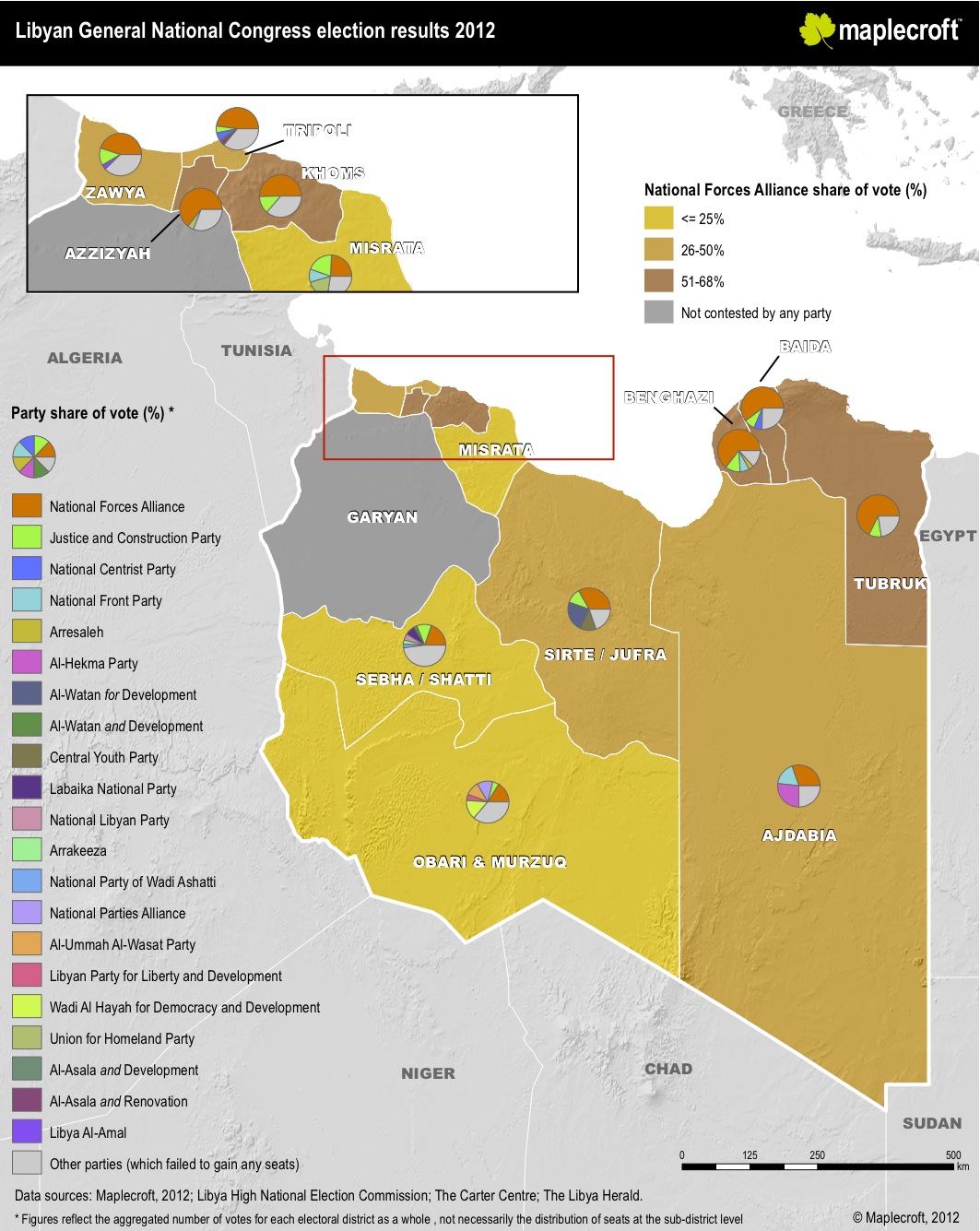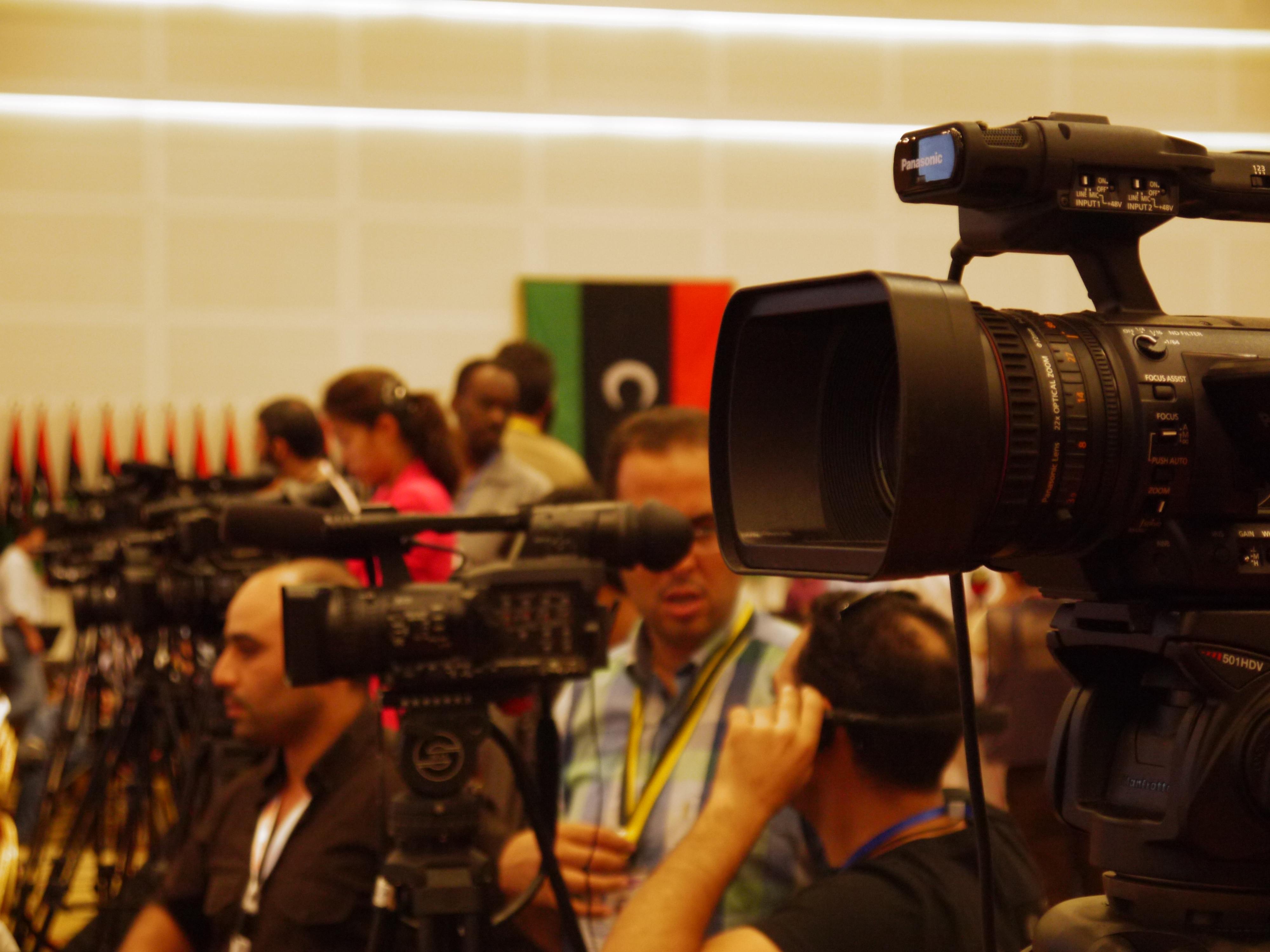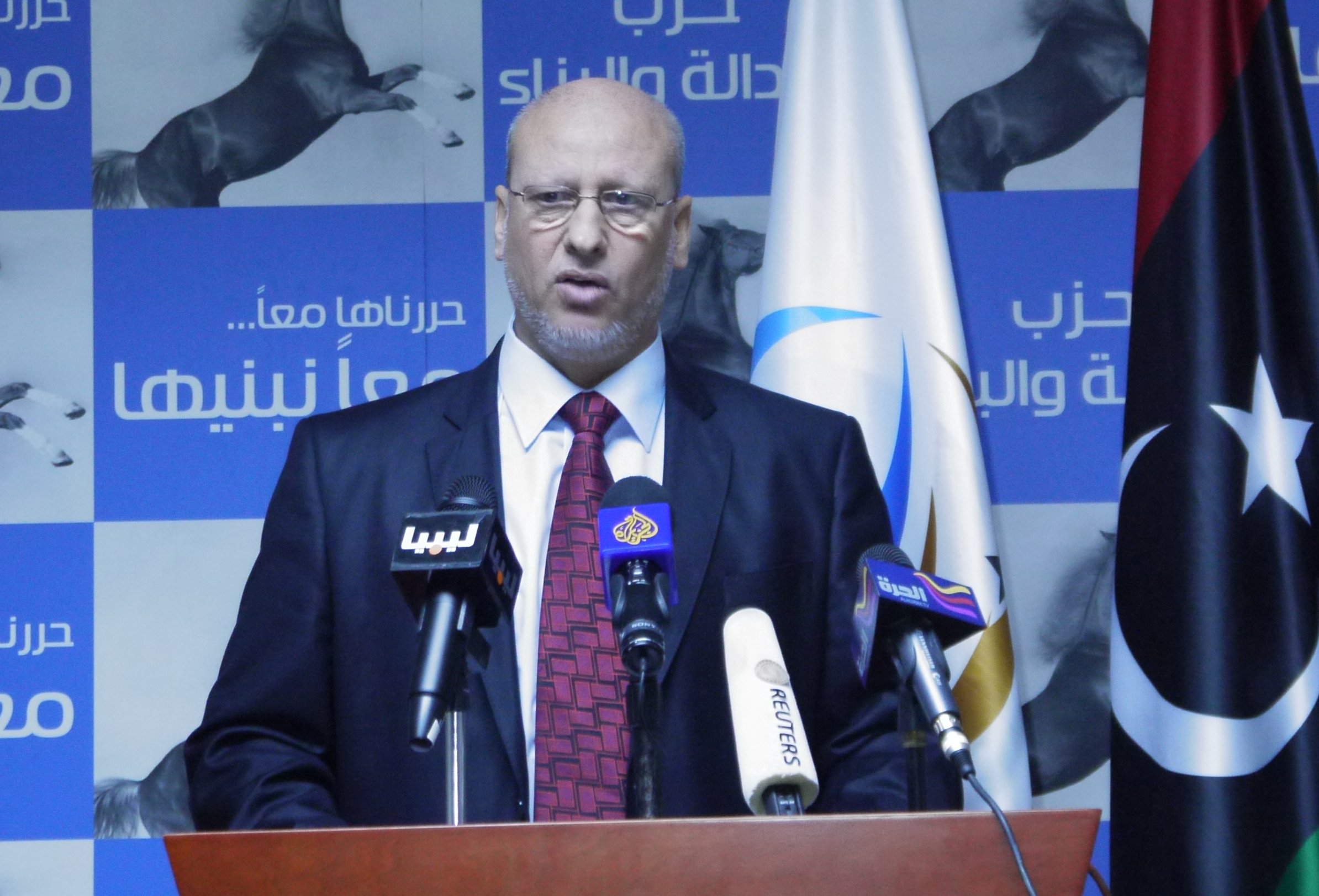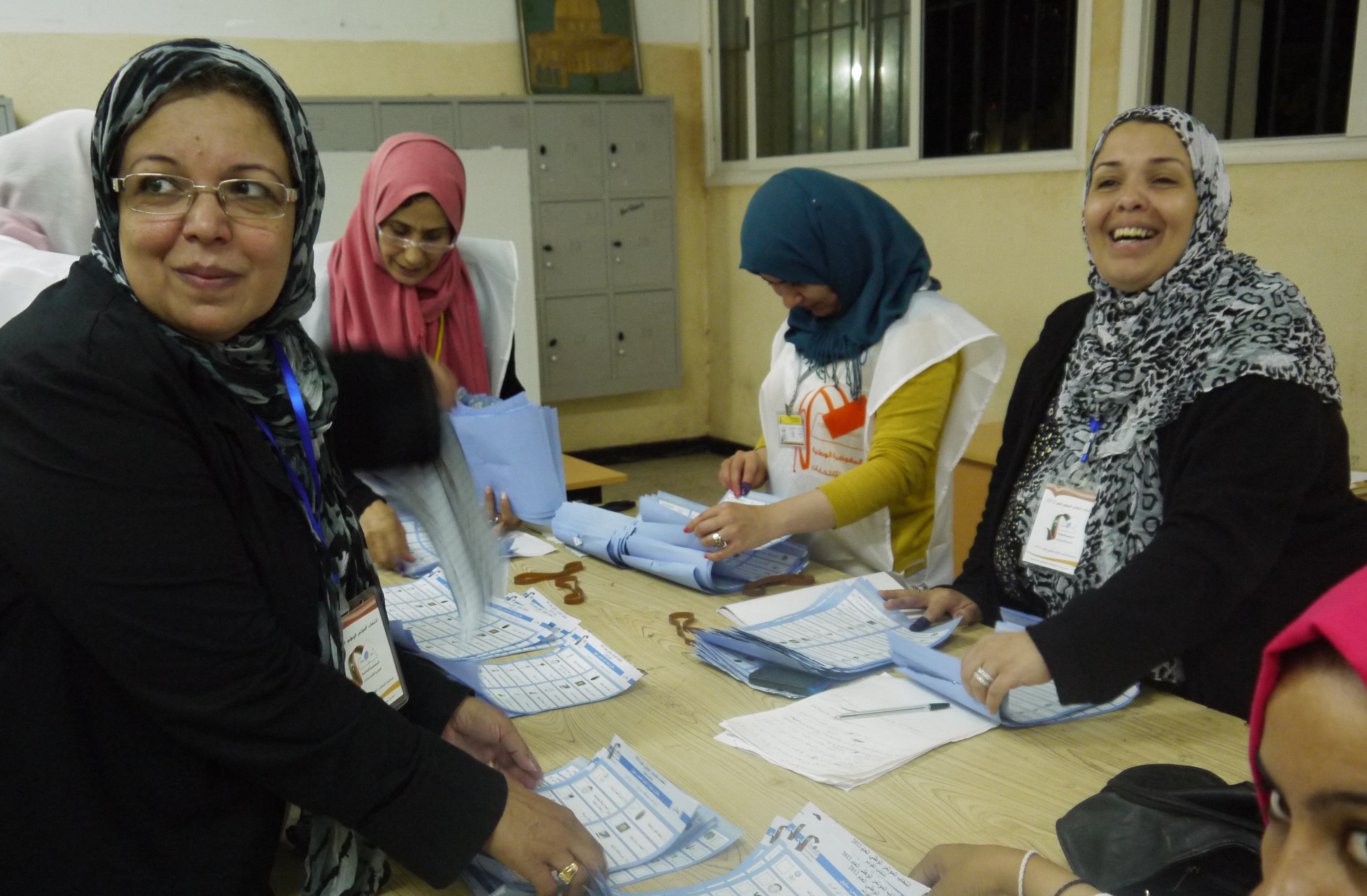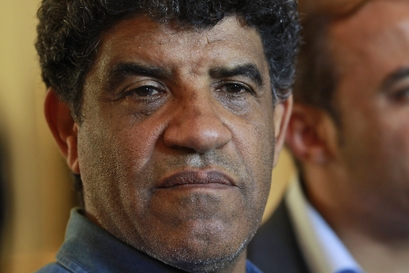By Michel Cousins.
Tripoli, 4 July:
The Union for Homeland party, . . .[restrict]which is fielding 60 candidates in the elections, was founded earlier this year by a number of people of whom Abdurrahman Sewehli is the best known. From a prominent Misrata family and grandson of Ramadan Sewehli, one of the founders of the 1918 Tripolitanian Republic, he was a target for Qaddafi’s hit squads on account of his campaigning against the regime from London in the late 1970s and 1980s.
For the Union for Homeland, the election is not about the economy or taxes or salaries or the state of education or healthcare in Libya. It is about putting together a constitution for the future of the country. The recognition that that is what these National Conference elections are all about is the big difference between it and other parties says campaign coordinator Salah Al-Bakush. Too many parties are campaigning on healthcare, salaries and other social and economic policies, he says, but they are missing the point. “The assembly has to concentrate on the constitution,” he insists.
“There is an idea that the Conference will simply appoint a commission [to draw up the constitution] and that’s all”, he says. “It’s a misapprehension. It’s the Conference which will decide what goes into the new constitution, not the commission.”
He gives an example. “You can’t expect an unelected 60-member commission to decide who is and who is not a Libyan citizen. It will be the Conference that decides.”
As to what actually goes in the constitution, the Union for Homeland supports “very strong decentralisation” based either on counties or municipalities. Bakush firmly dismisses federalism. “If someone in Kufra has to travel to Benghazi [on official business] rather than Tripoli, then we will have failed,” he states. The fact that federalism may be misunderstood in Libya and that it works in places such as Germany or Spain is no argument in its favour either, he says. “Look at Nigeria,” he says. “It’s federal.” But it is also full of poverty and corruption, and there is terrorism as well. “The federal system is not a panacea,” he declares.
The party also wants a modified presidential system “like the French system,” says Bakush. The party says it certainly does not want a full presidential system. “In too many emerging democracies that adopted the presidential system, it became a dictatorship,” he notes.
As far as the Union for Homeland is concerned, the other big difference between it and other parties is its demand for a total break not merely with the Qaddafi system but those who served it. “A new Libya has to be built by fresh faces and fresh blood”. There is, Bakush insists, “great public support” for this. To those who say that Libya needs reconciliation at the moment, he is bullish. He points out that in 1945, no one suggested that Nazi officials should be allowed to retain their jobs in the new Germany. It was the same after the fall of communism in Eastern Europe, he says. The old communist apparatchiks were swept away, he notes. There was no reconciliation with the servants of the old regime as far as working for the political systems went.
It has to be the same in Libya, the Union for Homeland believes.
“People spilled their blood” to get rid of the Qaddafi regime, Bakush says, and it would be profoundly wrong to allow its servants to continue running Libya. People are talking about reconciliation “but there has to be justice and reconciliation, not just reconciliation”.
Where the party’s support lies, Bakush candidly admits, is impossible to say at present. There is no previous electoral experience to draw on. “We have strong candidates in all areas but right now we don’t know where our strong support is.”
He is, however, cautious but confident that the party will takes seats in certain districts. “I think it will be a good showing if we get more than 15 percent of the seats.”
[/restrict]




